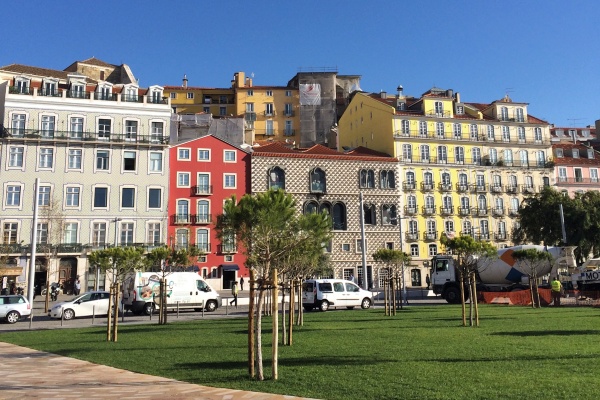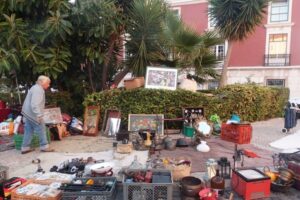Last Updated on November 29, 2025 by Emma Fajcz | Published: November 26, 2018
They say Portugal is sunny 300 days a year and, in Lisbon, locals flock to parks and gardens any chance they get.
Anything can happen at Lisbon parks and gardens. From concerts, art performances and impromptu gatherings of old men playing cards, to seasonal street markets, weddings and kids’ birthday parties. They’re a venue, a pretty spot, and a family hangout all at once. Whatever use people make of them, any day is a good day to visit these six parks and gardens in Lisbon.

1. Parque Florestal de Monsanto
Parque Florestal de Monsanto is Lisbon’s beloved urban park and part of a lot of locals’ childhood memories. There’s a place for all kinds of outdoors enthusiasts, even if your idea of a perfect Sunday in Lisbon is tending to the barbecue grill.
There are biking and hiking paths, two parks for kids (Serafina is the most popular), designated areas for picnics and camping, and Lisbon’s most famous abandoned building, Panorâmico de Monsanto. The former 1960s restaurant is both a viewpoint and a known street art location, with plans to be rebuilt soon.
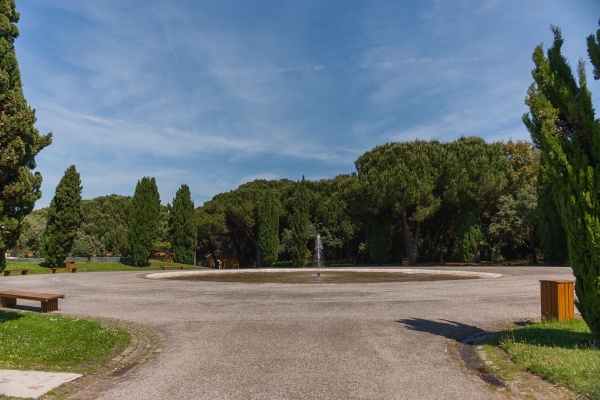
2. Fundação Calouste Gulbenkian
As the buildings of the Calouste Gulbenkian Foundation, housing the founder’s private art collection, the gardens are a work of art. The landscape architects selected every tree and plant to fit an esthetic and teaching purpose. After all, that is the mission of the foundation.
The lawns near the lake are the refuge of choice for the students of the nearby University, sharing the space with resident wobbling ducks. The outdoor auditorium welcomes concerts in the summer and avid book readers all year long.
For the curious about landscape architecture, the foundation asked the garden’s architect Gonçalo Ribeiro Telles to design a set of itineraries. The light and shade, the pond, and the rim are the three itineraries available to all visitors who want to explore the park on their own.
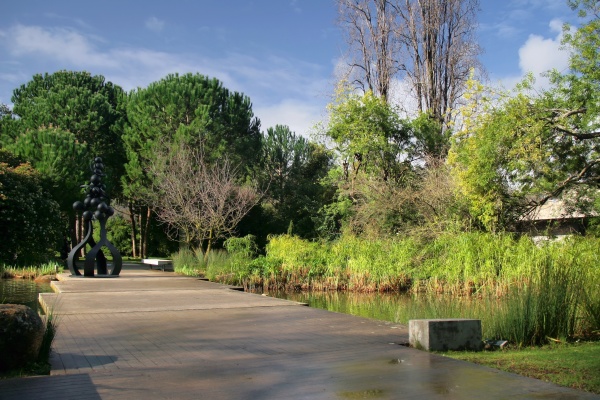
3. Jardim Botânico da Ajuda
The minute you step through the gate of Jardim Botânico da Ajuda, the resident white peacock will most likely greet you. If you can’t shake the feeling that such a luxurious looking garden is missing something, you’re not entirely wrong. Shouldn’t there be an equally lavish palace to go with it?
King José commissioned the garden in 1768 for their children to learn more about plants. The Royal Family did live on the grounds at that time, on an improvised wooden palace. After escaping from the palace closer to the river during the 1755 Great Earthquake, the king wanted something a bit sturdier as their family home. This was their temporary home while they built Palácio da Ajuda, a few meters up the street.
Their motto is “teaching science since 1768,” and the garden organizes a series of guided tours for all ages and learning stages.
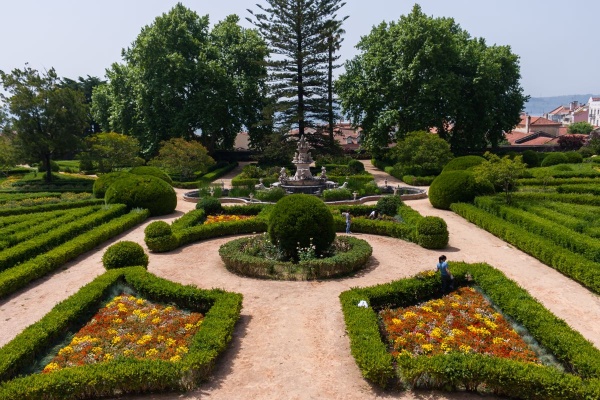
4. Jardim Botânico do Príncipe Real
It’s difficult to spot unless you see it from the next garden on this list and easy to miss if you’re not actively looking for it. Jardim Botânico do Príncipe Real is a must-visit for botanists wannabe. For many tourists, it’s a nice addition to the visit to the Natural History Museum on the premises.
The plants, trees, pathways, and staircases follow the gentle slope of the hill. As you go down, you’ll feel more in touch with nature and you’ll almost forget you’re in the heart of Lisbon’s city center.
As part of the University of Lisbon, the garden’s purpose is, since its inception, to teach through plants and trees from five continents. During the warmer months, the butterfly garden is the main attraction where you can see all stages from caterpillar to cocoon to beautiful butterflies flying around you.
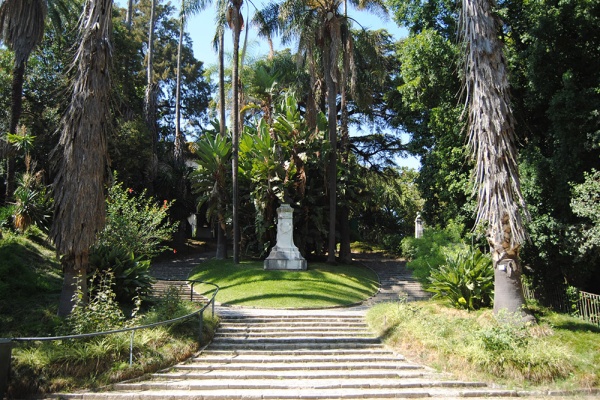
5. Jardim do Torel
Once a private gated garden, Jardim do Torel is still secluded in its way except everyone has access to it now. It’s not completely secret, but it’s not overrun by tourists either. We could say it’s the sweet spot of Lisbon parks, at least that close to the Baixa-Chiado neighborhood.
It doesn’t provide the most open view to the Restauradores square and yet you’ll spend quite some time identifying iconic buildings like Rossio train station, the Carmo Convent ruins, and, if you pay attention, the previously mentioned Jardim Botânico do Príncipe Real.
The lounge chair-like benches make the garden a great spot for reading when the sun isn’t too bright.
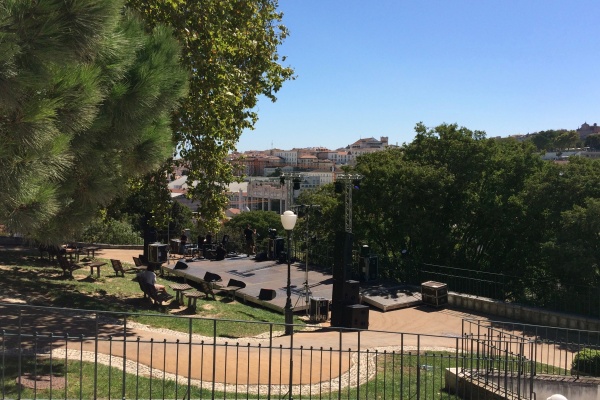
6. Campo das Cebolas
When the City Council announced they were turning an ugly parking lot into a garden near the Tagus River, the locals rejoiced. And then the construction halted for what felt like forever. As a city that survived a major earthquake, it’s not unusual to open a hole and dig up something. Therefore, a team of archeologists took over the construction site.
After tons (yes, tons) of archeological findings were removed from the site, seeing the finished garden was a like a breath of fresh air. Alfama’s beautiful light now stretches closer to the river, as the old Campo das Cebolas parking lot was replaced by a beautiful green lawn, trees, and playground equipment for kids.
As for the archeological findings left behind, you’ll see a 17th century stone staircase that led to a previously existent old harbor.
